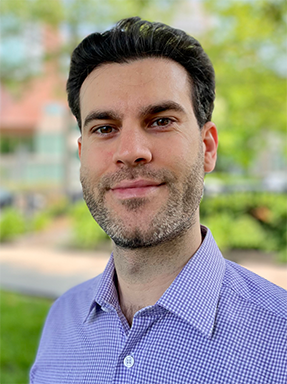
Pablo P. Castello
Research Fellow, Animal Law Program
Professional Biography
Pablo P. Castello is a Research Fellow at the Animal Law Program at Sturm College of Law, University of Denver. Drawing on his previous work at Harvard, he is currently developing a book project on the relationship between visibility, the recognition of violence, and legitimate governance. His book challenges the idea that “seeing is believing” and explores new ways to change people’s hearts and minds.
Dr. Castello has also been awarded research fellowships at the Animal Law and Policy Program at Harvard Law School, the Cambridge Centre for Animal Rights Law, University of Cambridge, the Global Research Network Think Tank, and the 2022-2024 postdoctoral research fellowship in animal studies at the Department of Philosophy, Queen’s University. He earned his BA Honours (First-class) from University College London, and his PhD on The Language of Zoodemocracy from Royal Holloway, University of London. From 2021 to 2022, Dr. Castello also worked as a Research Assistant for the Cambridge Centre for Animal Rights Law to develop Raffael Fasel and Sean Butler’s book Animal Rights Law (Hart Publishing, 2023).
In addition to his work on visibility, the recognition of violence, and legitimate governance, Dr. Castello’s research encompasses themes such as dominion, territorial rights, the legal recognition of wild animals’ right to self-determination, the inclusion of nonhuman animals' voices in decision-making, biodiversity-based conservation policies, and ecofeminist vegan ethics. His research has been published in top ranked peer-reviewed journals such as the American Political Science Review, Biological Conservation, and Hypatia as well as featured in popular outlets such as The Conversation and ABC.
You can follow Dr. Castello’s work at:
Bluesky: @pablopcastello.bsky.social
LinkedIn: www.linkedin.com/in/pablo-p-castello-8aa65a18b
Featured Publications
‘Why Seeing Is Not Believing and Why Believing Is Seeing: On the Politics of Sight’ (2025) American Political Science Review, 119(1): 124-134.
The Fabric of Zoodemocracy: A Systemic Approach to Deliberative Zoodemocracy (2025) Critical Review of International Social and Political Philosophy.
With Haraway and Beyond: Towards an Ecofeminist and Contextual Vegan Ethico-Politics (2024) Hypatia: A Journal of Feminist Philosophy, 39(2): 257–281.
Care as Method for Multispecies Ethnographies (2024). In Chloë Taylor(ed), The Routledge Companion to Gender and animals. London: Routledge.
Is seeing believing? Not really, so animal welfare campaigns should take a different approach. The Conversation(politics section).
Rethinking the Mantra of Biodiversity: Why the Past Should Not Determine the Future (2024, co-authored with Francisco J. Santiago-Avila) ABC (Ethics and Religion section).
Conservation After Biodiversity: An Analysis of Michael E. Soulé’s ‘What is Conservation Biology? (2023, co-authored with Francisco J. Santiago-Avila). Biological Conservation 287.
A Strategic Proposal for Legally Protecting Wild Animals. Journal of International Wildlife Law & Policy 25(2): 1-32.
Conservation After Sovereignty: Deconstructing Australian Policies Against Horses with a Plea and Proposal (2022, co-authored with Francisco J. Santiago-Avila).Hypatia: A Journal of Feminist Philosophy 37(1):136–163.
Zoolondopolis (2022) Animal Studies Journal, Special Issue on ‘Flourishing Animals,’ 11(1), 2022, 121-145.
The Erasures of Peter Singer’s Theory and the Ethical Need to Consider Animals as Irreducible Others (2022) Philosophy Today 66, no. 3: 637-653.


